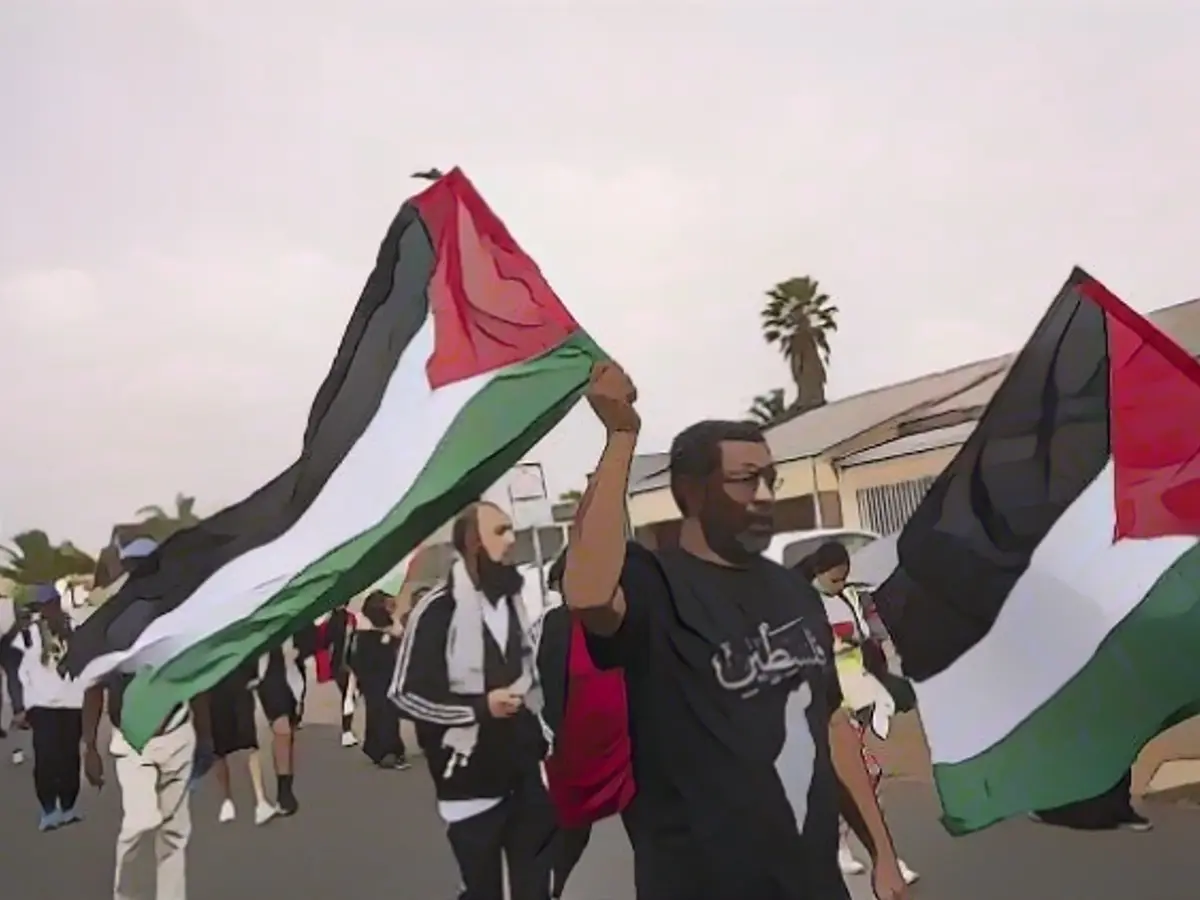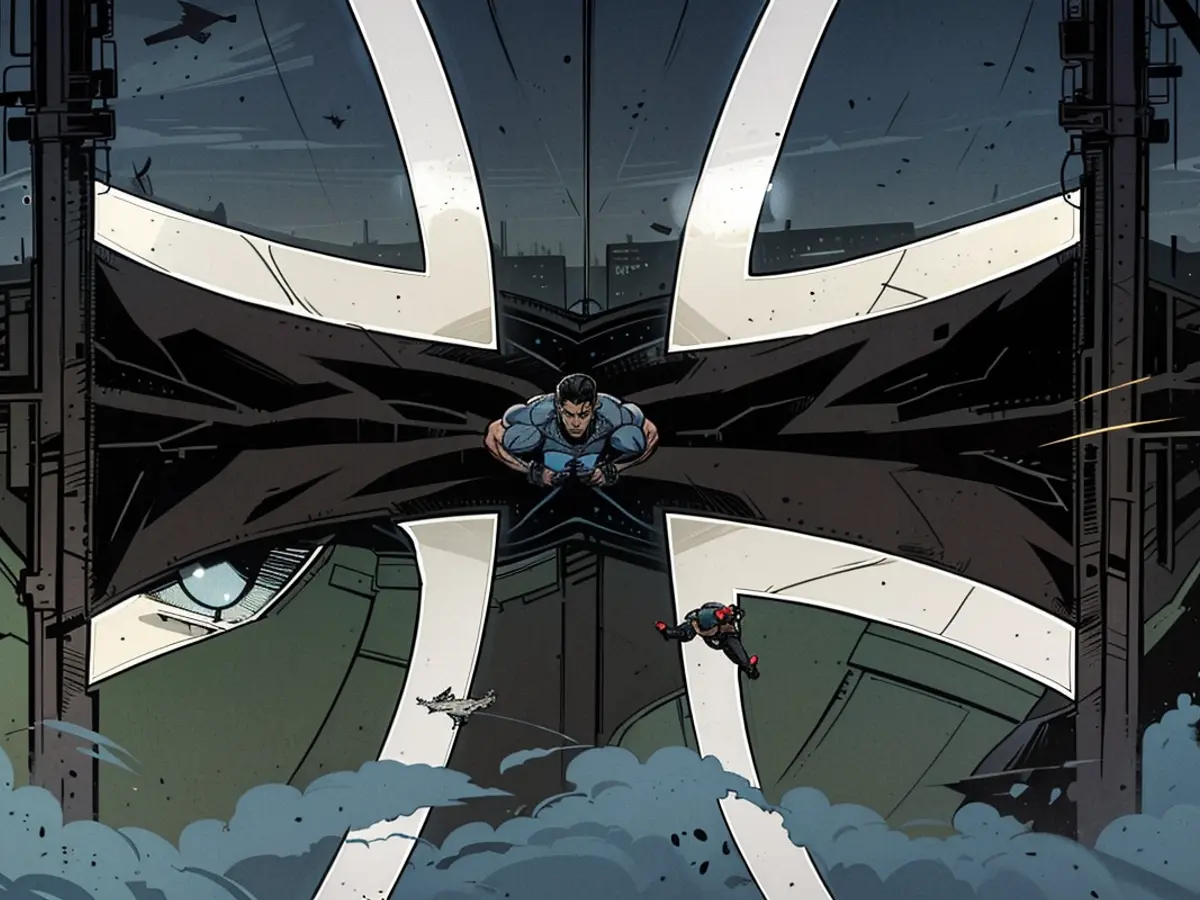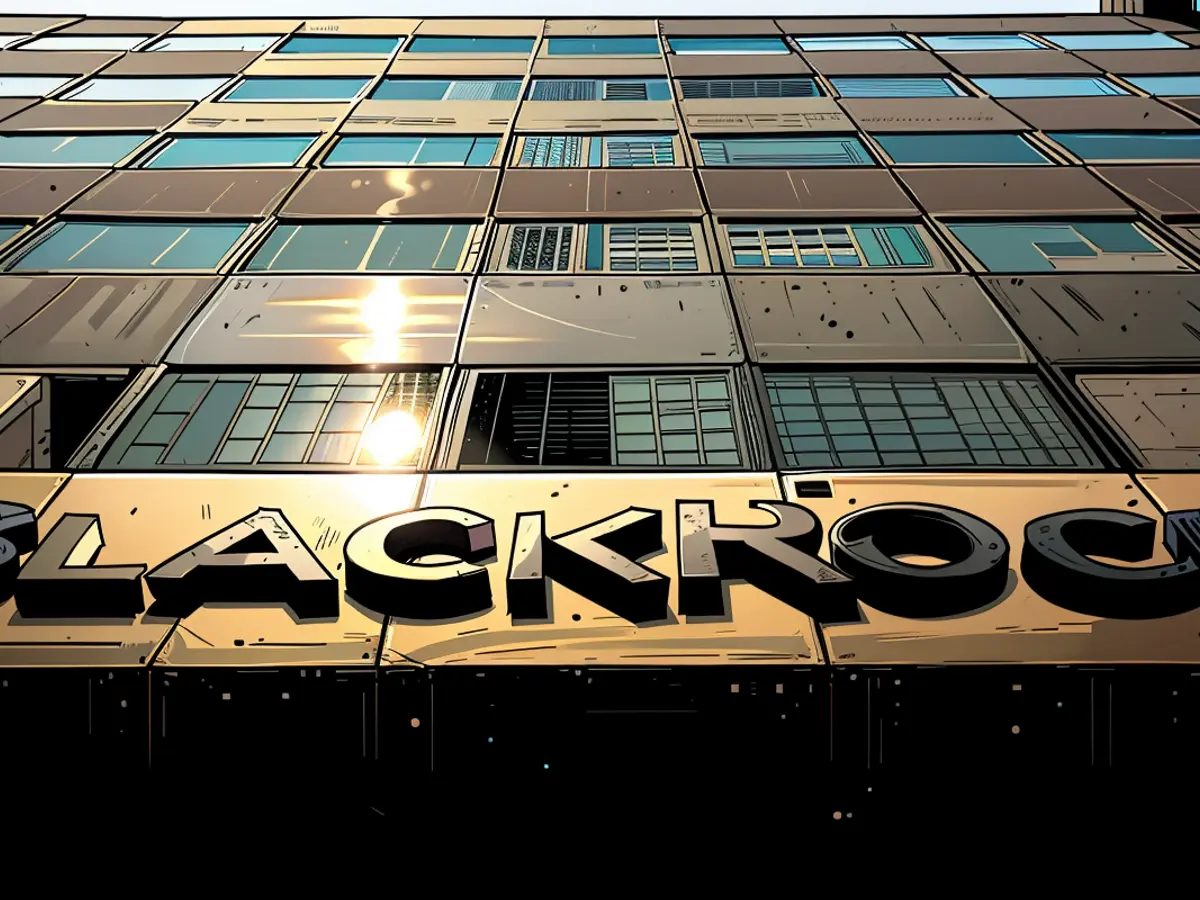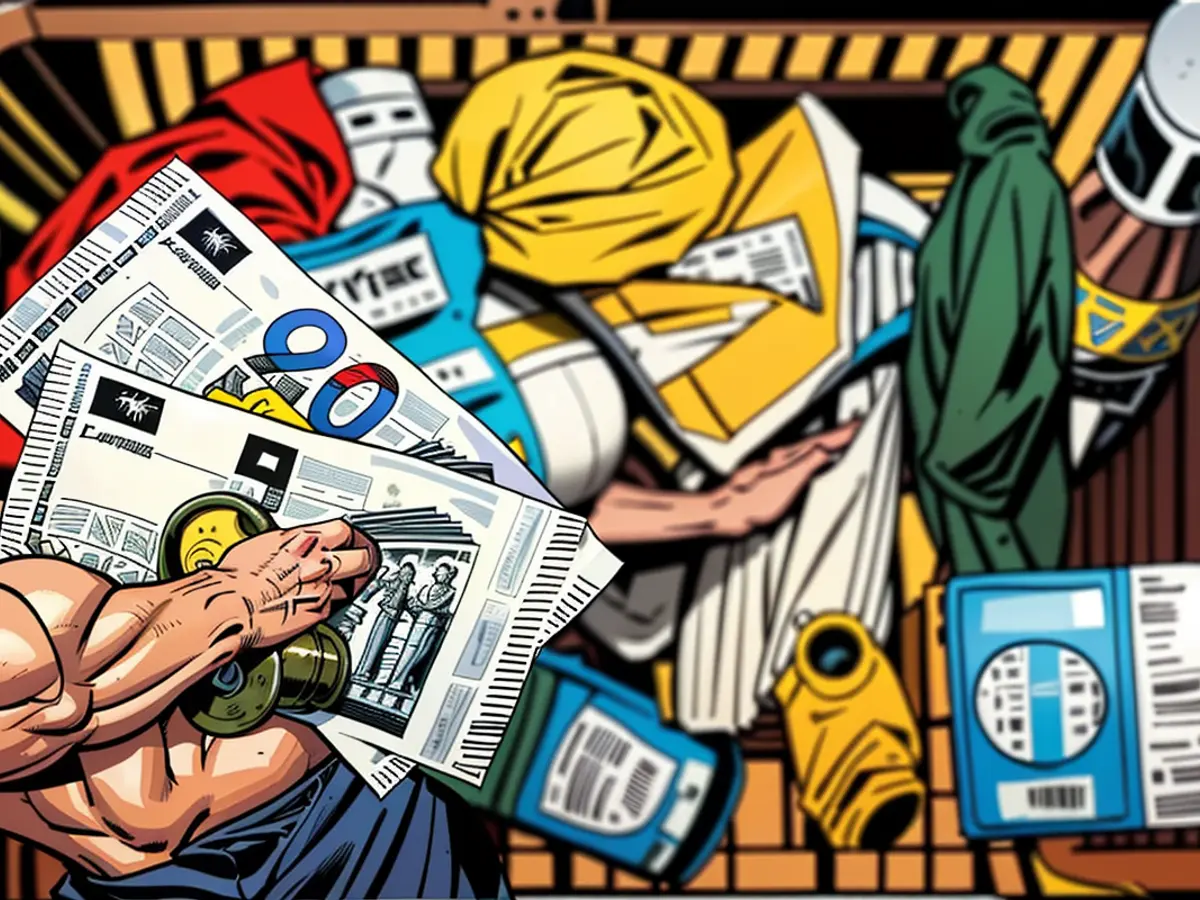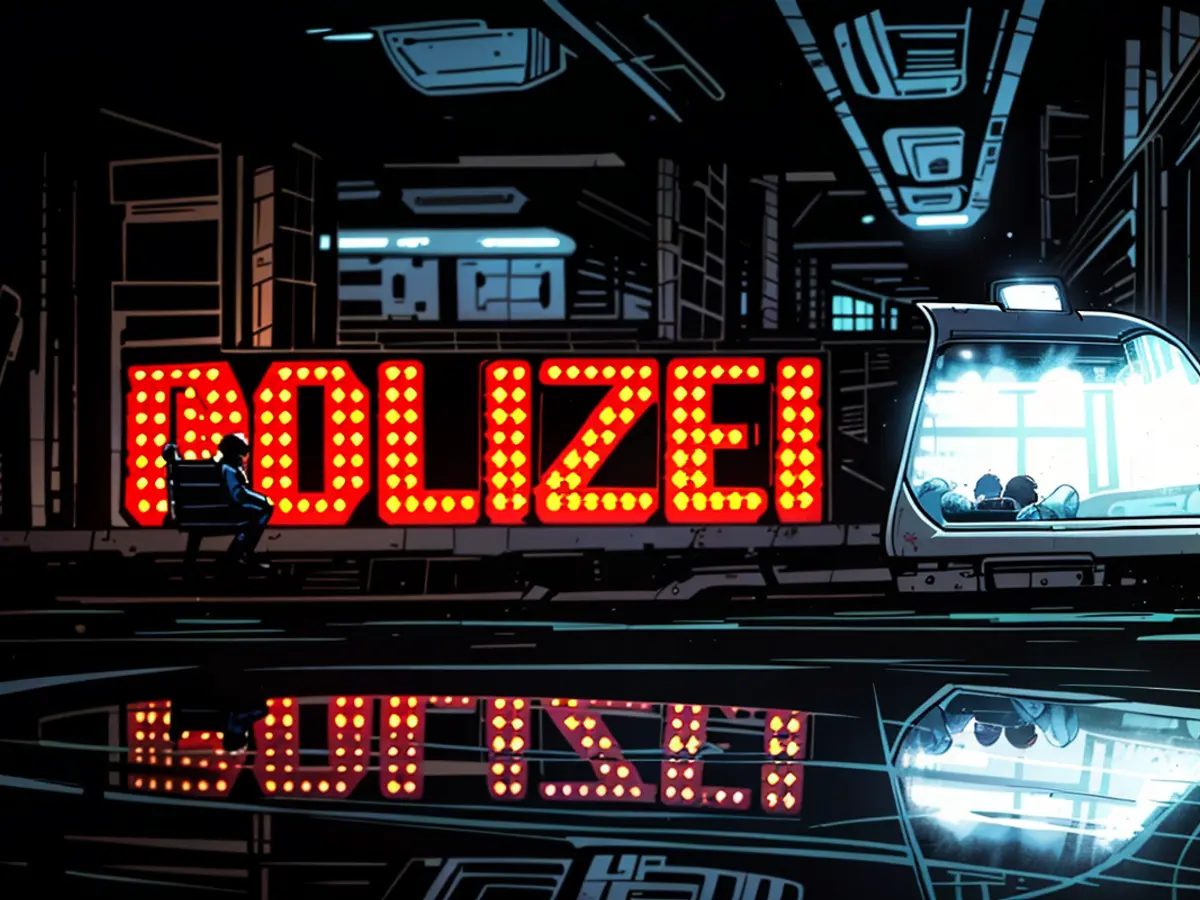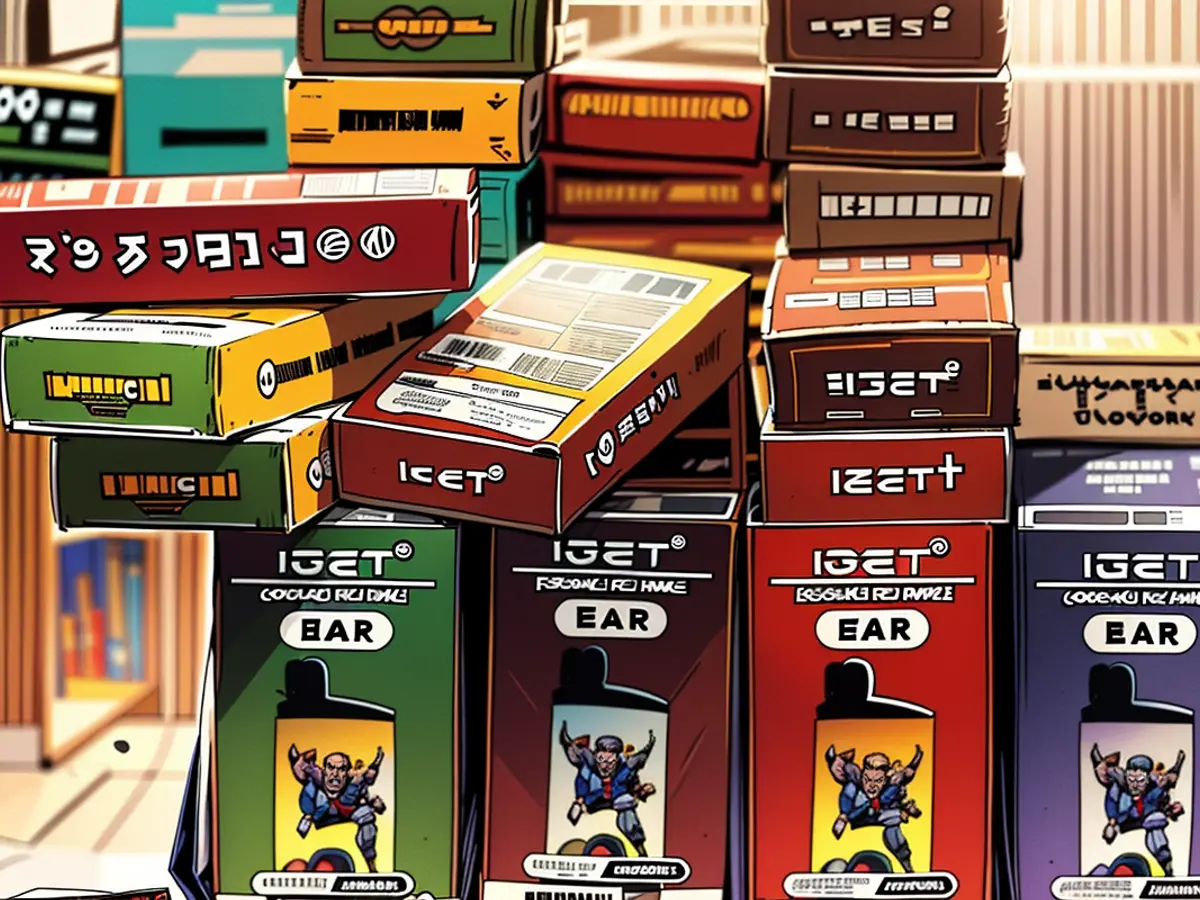Why the Gaza war is dividing Africa so much
The African Union is trying to remain neutral in the war between Hamas and Israel. This is probably also due to the fact that the continent is extremely divided on this issue. This has its causes, both historical and current.
"The Chairperson calls on the international community and in particular the world's major powers to take responsibility, enforce peace and guarantee the rights of both peoples," emphasized Moussa Faki Mahamat, Chairperson of the African Union (AU) on 7 October, the day of the Hamas attack on Israel. On behalf of the entire African continent, he called on both parties to the conflict in the Middle East to "cease military hostilities" and enter into negotiations. However, while the AU is striving for neutrality, as it did previously in the Ukraine war, African governments and societies are deeply divided in their stance.
Traditionally, many African governments, especially those that seized power in the course of liberation conflicts, are on the side of the Palestinians. In their eyes, the causes of this ongoing conflict in the Middle East are to be seen in European colonial history, in which Europeans drew borders on the drawing board and accepted the forcible resettlement of numerous, in their eyes, inferior peoples.
Sympathy for Hamas in South Africa
A typical example is the attitude of the government in South Africa. For South Africa's ruling party ANC (African National Congress), which emerged from the liberation movement against the apartheid regime, Israel's attitude towards the Palestinians is tantamount to the apartheid it suffered itself. It is therefore not surprising that South Africa's Foreign Minister Naledi Pandor spoke to Hamas leader Ismail Haniyeh on the phone after the conflict broke out.
Rumors circulated on social media that she had even promised Hamas support. However, Vincent Magwenya, spokesperson for South Africa's President Cyril Ramaphosa, immediately clarified: "We do not have bilateral relations with Hamas. We have bilateral relations with the Palestinian Authority. Support for the Palestinian struggle against the occupation is not the same as support for Hamas."
West Africa rejects invasion
In West Africa, there has been criticism of Israel's attacks on Gaza, but without taking too much sides with the Palestinians. Numerous military coups have recently taken place in the region, and in several cases the option of an invasion by regional troops to restore the old order has been discussed. And, as in South Africa, Israel's own situation is being projected onto the Middle East: "Many cities and communities in our region would suffer what the innocent men, women and children of Israel have suffered at the hands of Hamas and what Gaza and its people are suffering today at the hands of Israel," explained Femi Fani-Kayode from the ruling Peoples Democratic Party (PDP) in Nigeria, the continent's most populous country.
But Israel also has friends in Africa, even very close partners. Ghana, for example, was one of the first African countries to recognize the state of Israel in the 1950s, shortly after the founding of the state of Israel in 1948, and where the first Israeli embassy was opened on the continent, with many more to follow. Following the independence of around 50 African states from their colonial rulers in the 1960s, Israel specifically sought proximity to the Africans. It hoped for support from them within the UN General Assembly, where the issue of the Palestinians was a recurring theme.
Close relations between Israel and Uganda
Prime Minister Benjamin Netanyahu has systematically and strategically expanded and intensified relations with many African countries over the past few years of his numerous terms in office - particularly in the areas of military cooperation and agriculture. In recent years, he has regularly visited East Africa both privately and as part of his office, especially Uganda, Rwanda and Kenya, where many Israeli businessmen invest and Israel trains and equips the national special forces and secret services. Since 2015, Israel has even been allowed to deport its African migrants to Rwanda and Uganda in return, under the table - as a secret deal, so to speak.
In 2016, he gave an extremely emotional speech on the runway of Uganda's international airport in Entebbe. He had been invited as a guest of honor to commemorate the successful liberation of around 250 hostages who had been kidnapped by Palestinian and German terrorists on an Air France plane in 1976. After numerous stopovers, the plane finally landed in Entebbe, where the then Ugandan dictator Idi Amin, an outspoken hater of Israel, gave the hostage-takers a friendly reception. Nevertheless, Israeli special forces managed to free the hostages on the tarmac. Only one soldier died: Jonathan Netanyahu, the brother of the current prime minister. The Israeli prime minister was deeply moved when Ugandan President Yoweri Museveni gave him a brotherly pat on the back.
Today, Uganda and Israel maintain very close contacts. Uganda's special forces regularly fly to Tel Aviv to receive training. Israeli espionage technologies are used in Uganda. Uganda's President Museveni and his wife are treated in Israel when they fall ill. Numerous former members of the Israeli army and secret services set up their own businesses in Uganda after retirement, investing in avocado and pineapple plantations, the harvest of which they fly home.
Criticism: African conflicts receive hardly any global attention
In the neighboring country, the Democratic Republic of Congo, Israeli businessmen have invested heavily in the minerals sector and in the banking industry. In the financial sector in particular, economic dependencies have grown immeasurably. The Israeli billionaire Dan Gertler has become rich through the diamond trade in Congo and is now considered the largest taxpayer and employer in the African country. The Israeli community in Congo's capital Kinshasa is so large that the only rabbi on the entire continent lives there. His synagogue in the upmarket Gome district is well attended. It is therefore no coincidence that Congo's President Felix Tshisekedi recently declared that the Democratic Republic of Congo and Israel would "jointly fight terror in all its forms".
In short: for African politicians, the Israel-Gaza conflict remains a moment to make friends on one side or the other in terms of foreign policy. In the current debate, however, African intellectuals are increasingly criticizing the world's intense preoccupation with the Middle East conflict, while bloody African civil wars and genocides, such as those currently taking place in Sudan, receive hardly any attention.
Source: www.ntv.de
